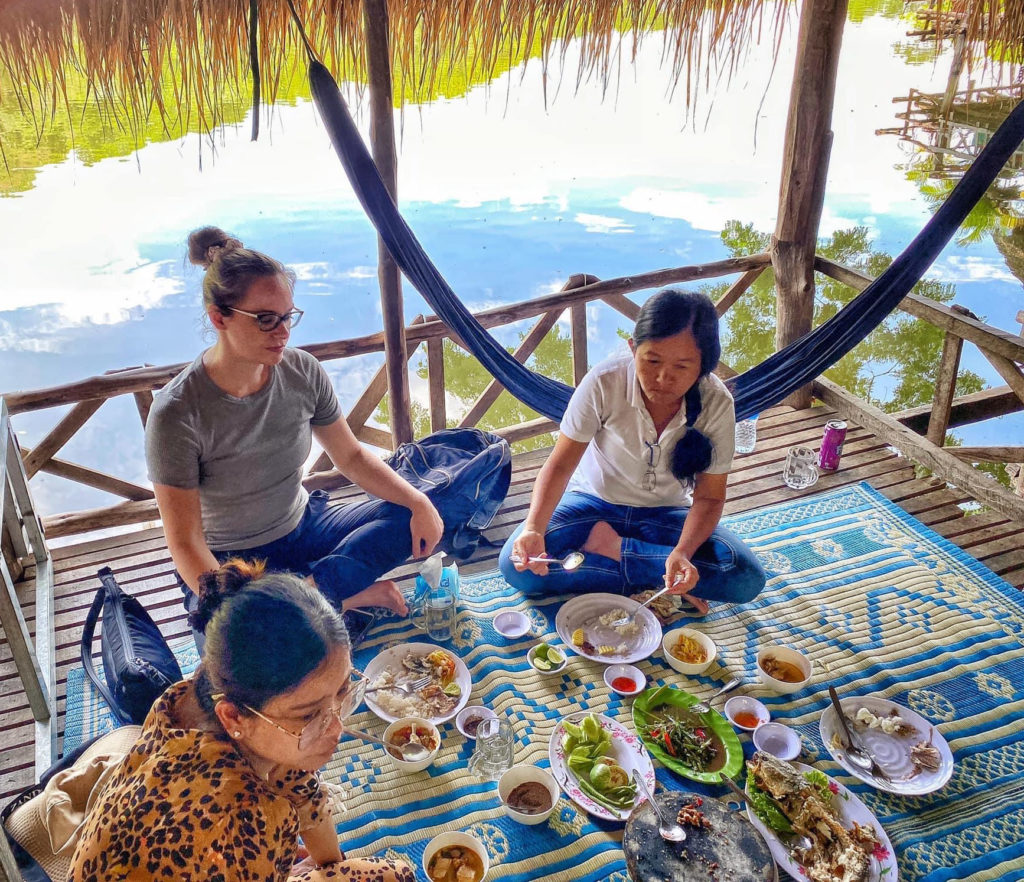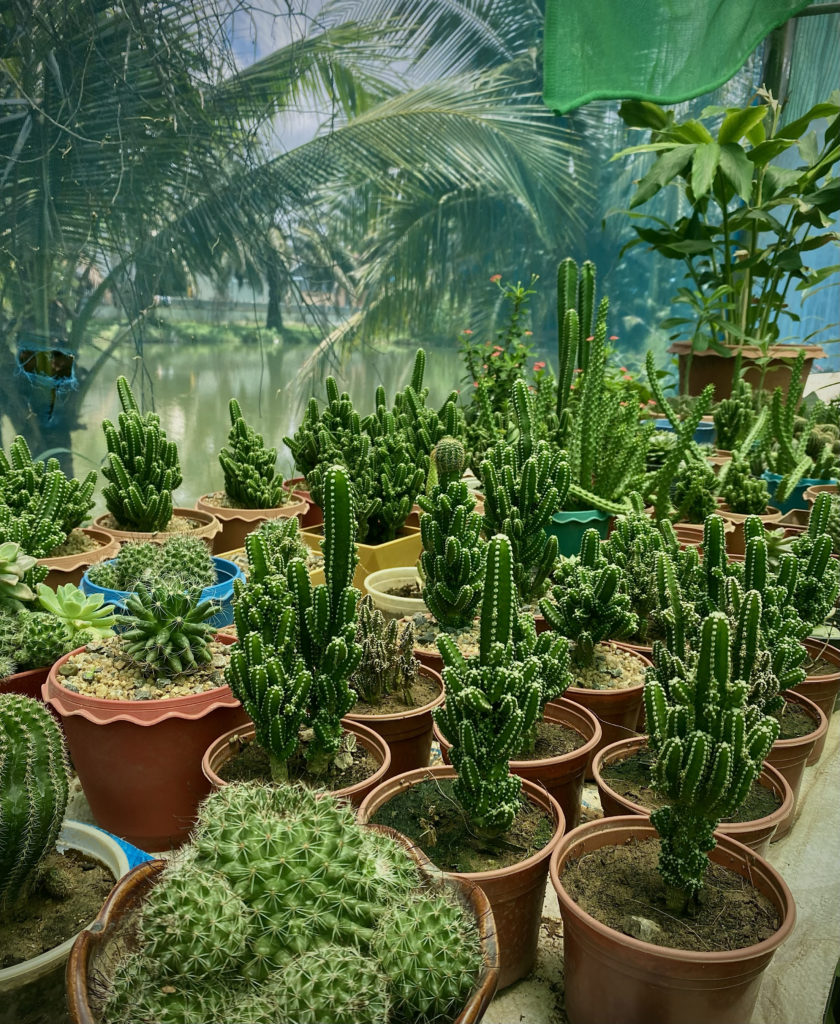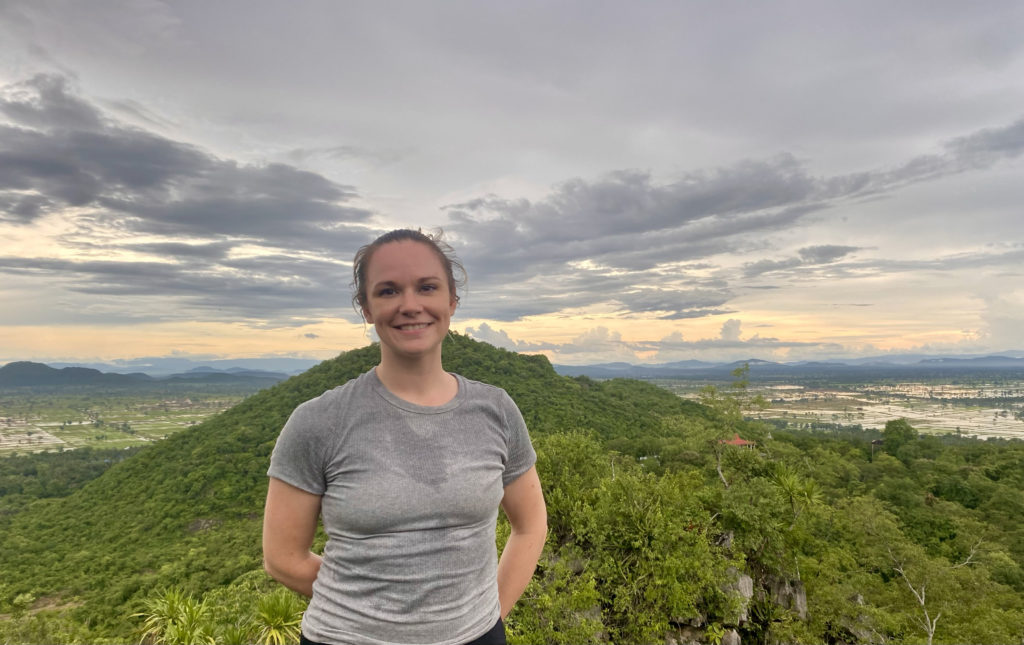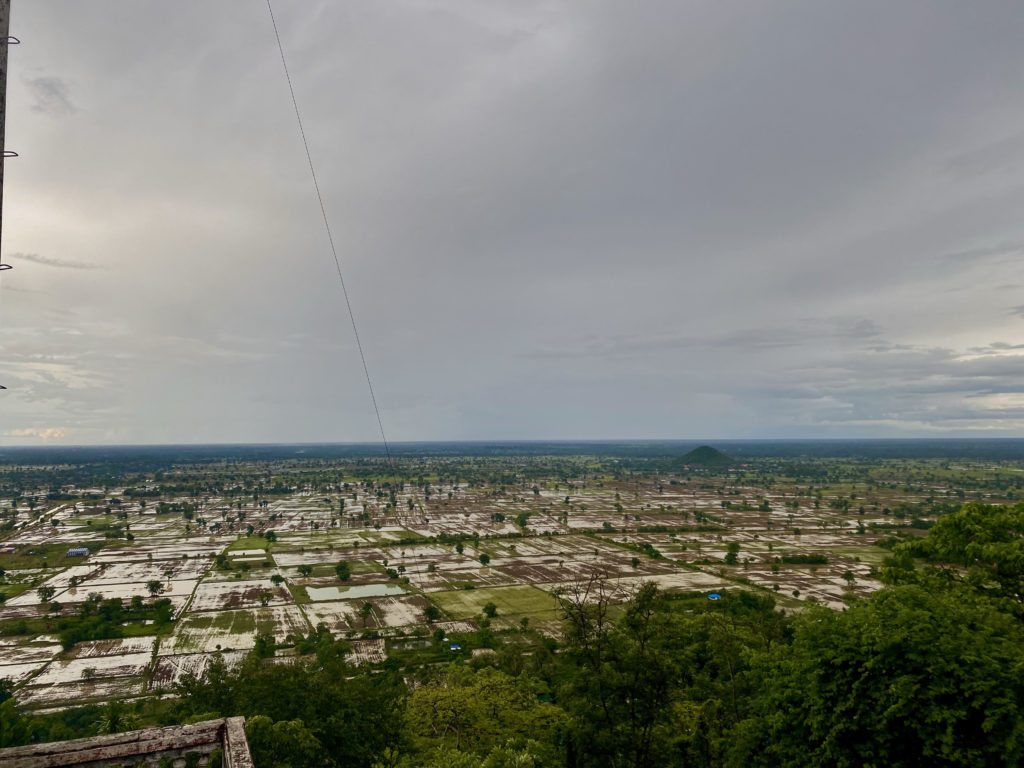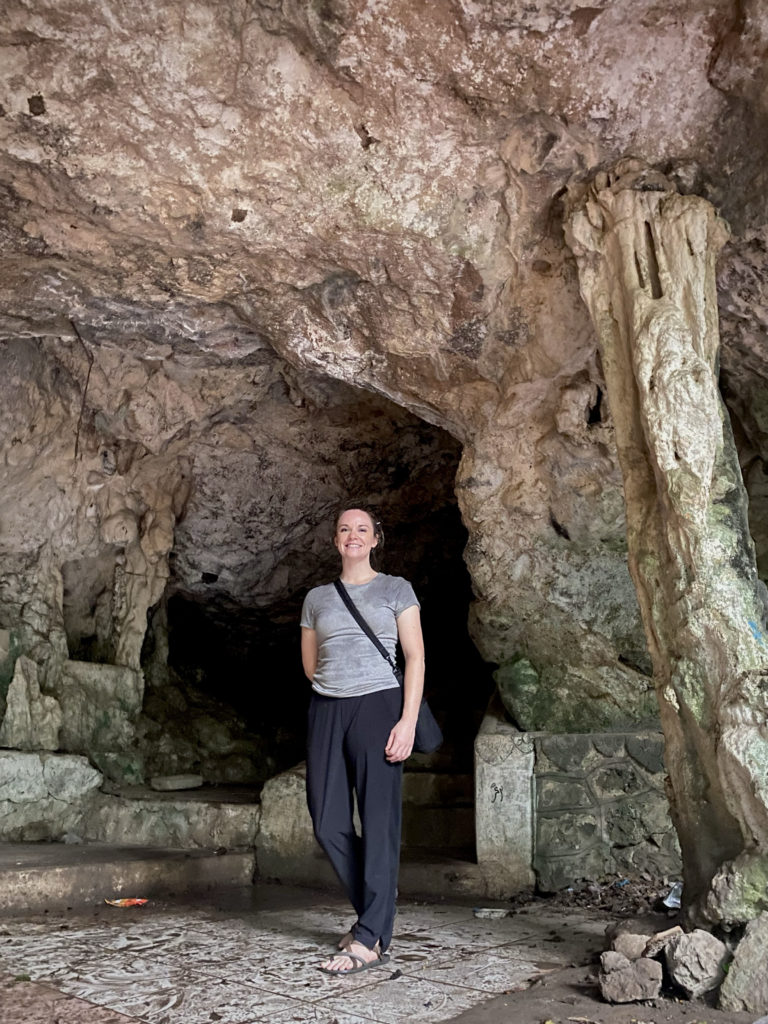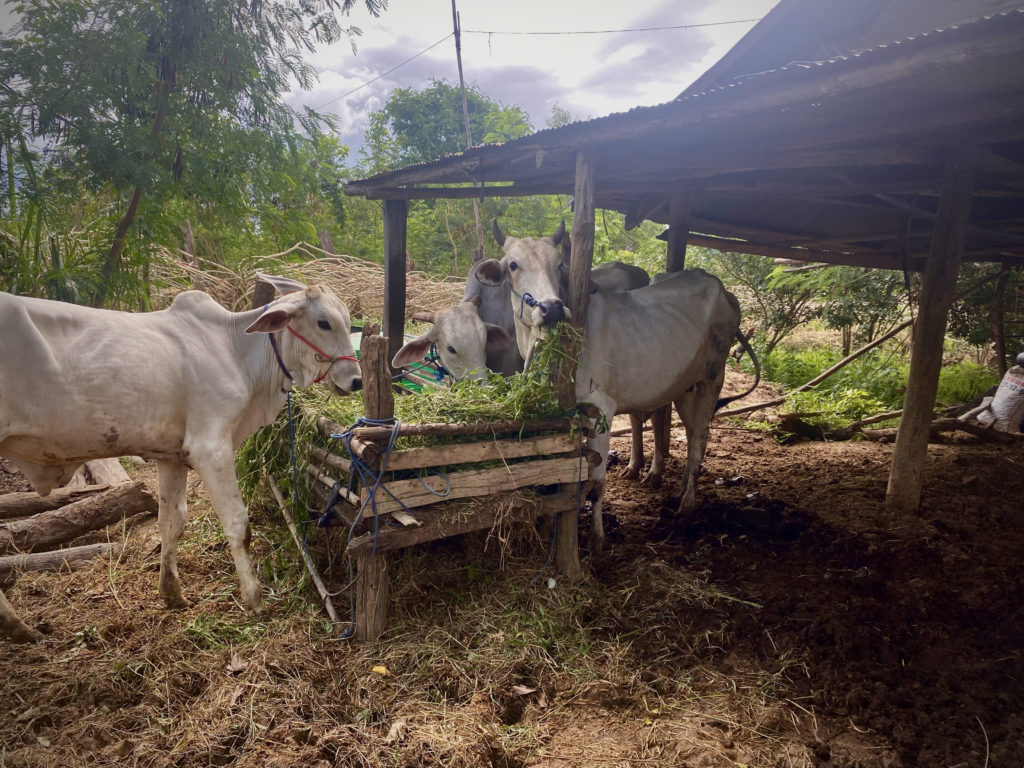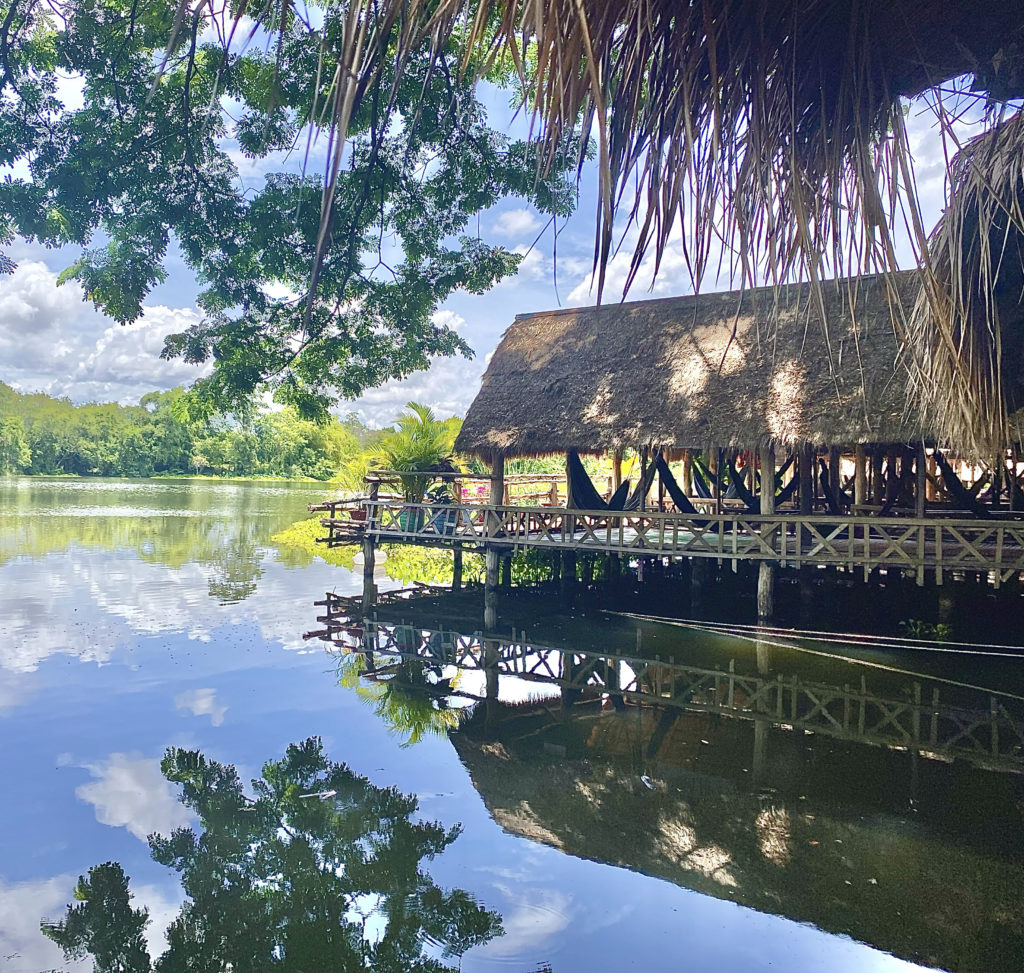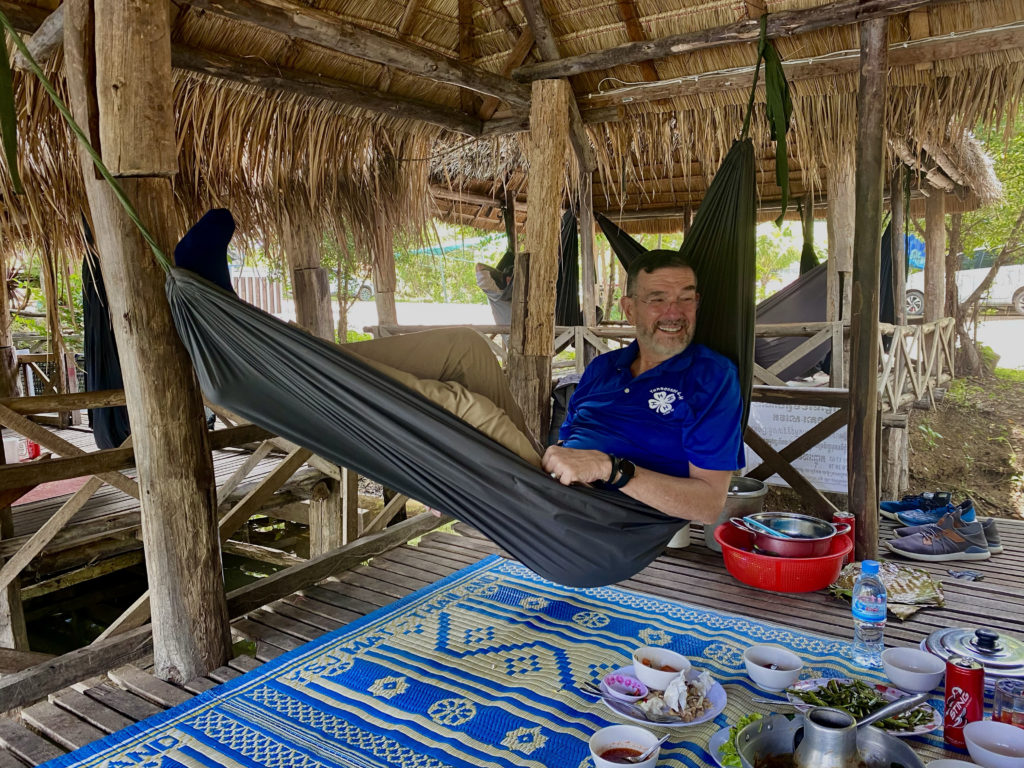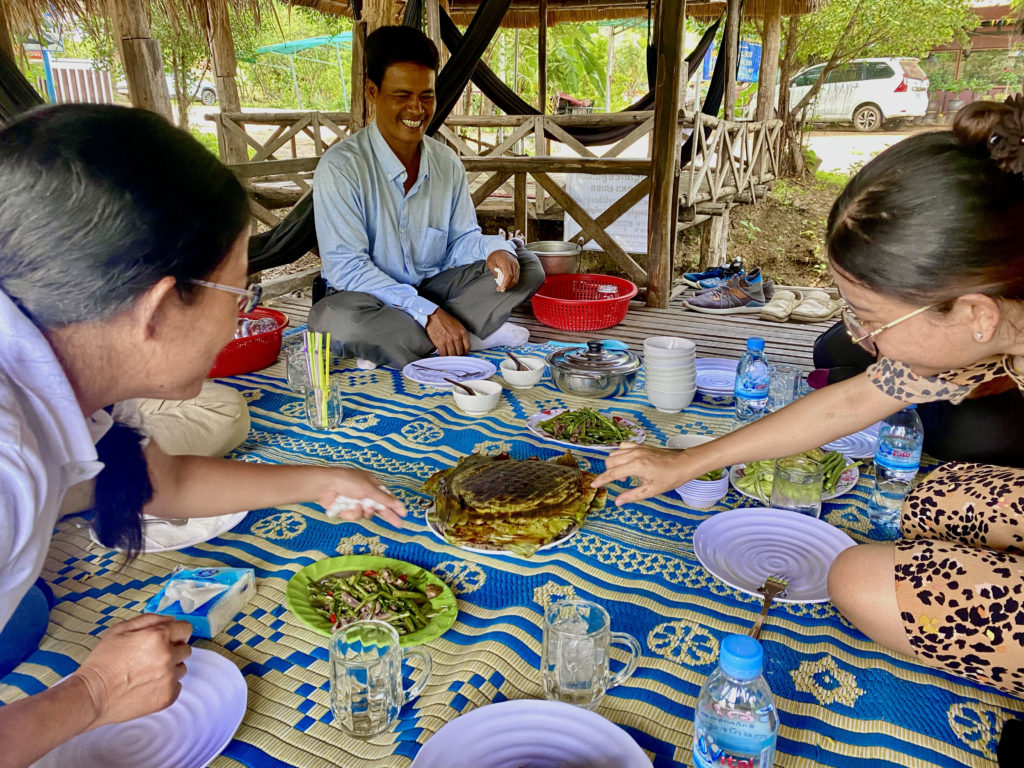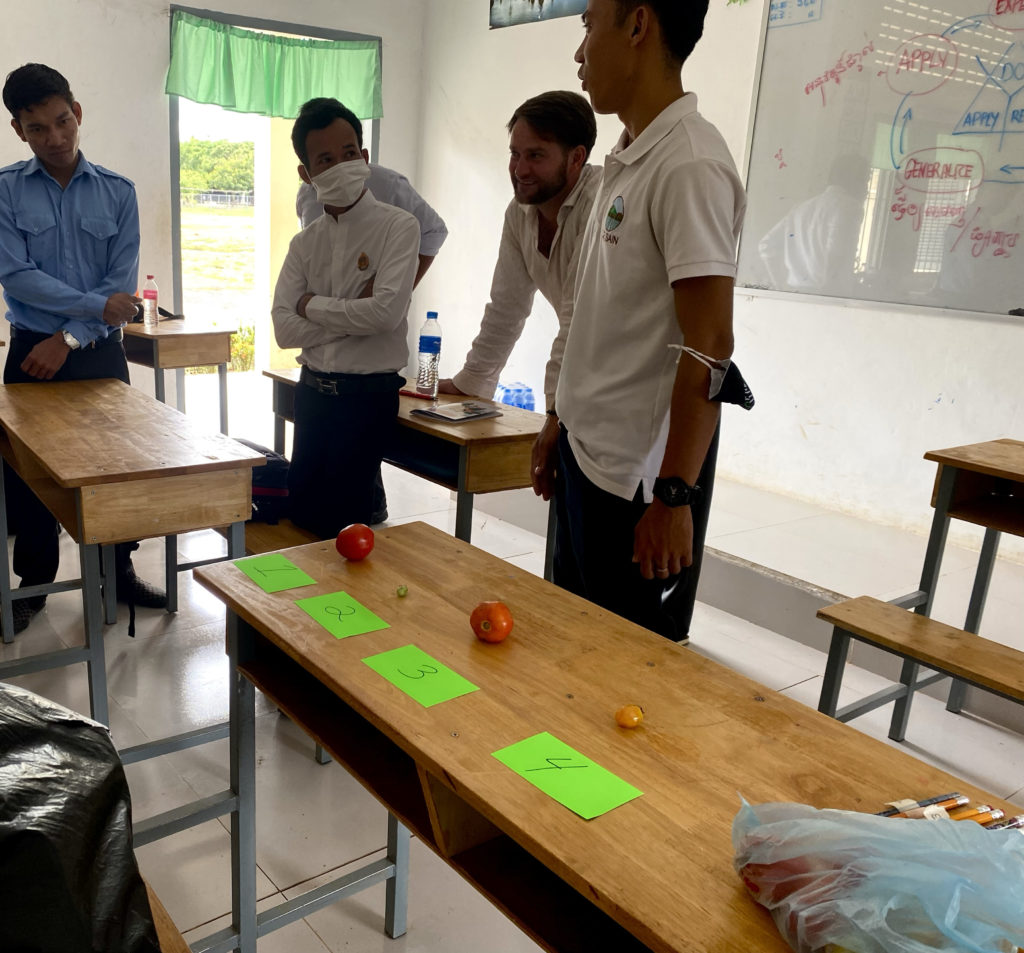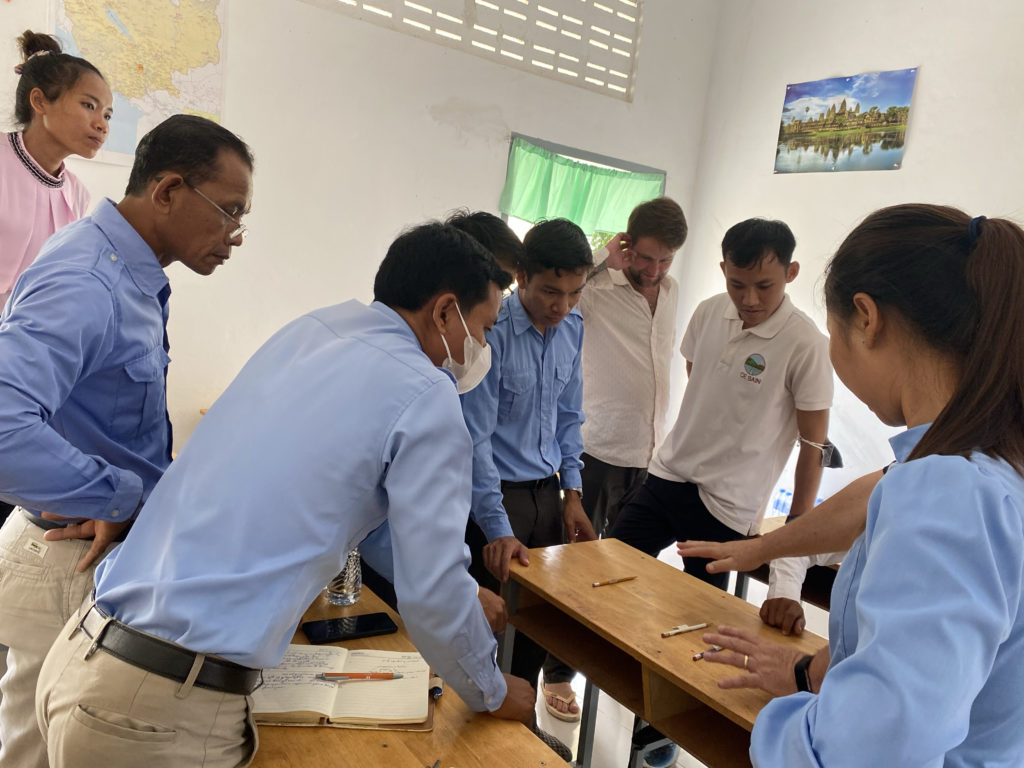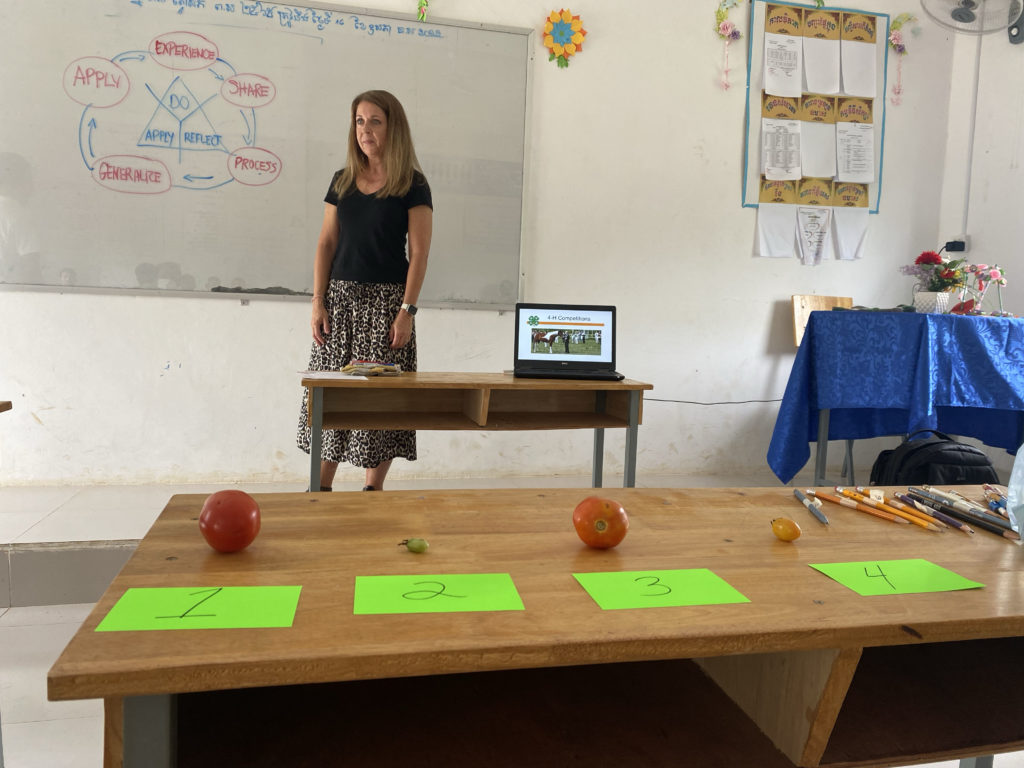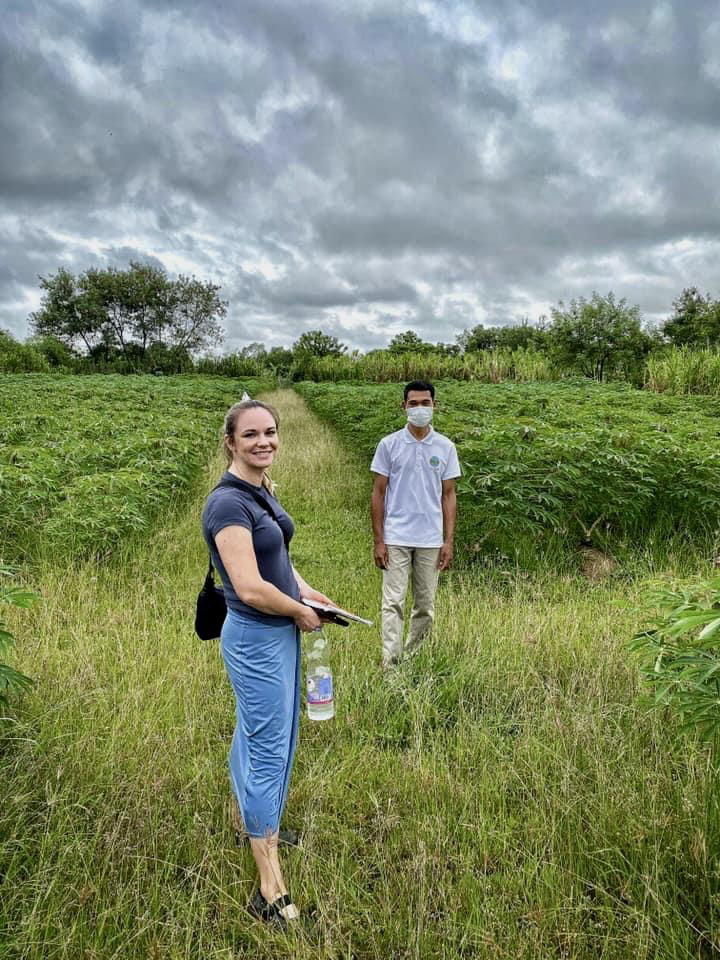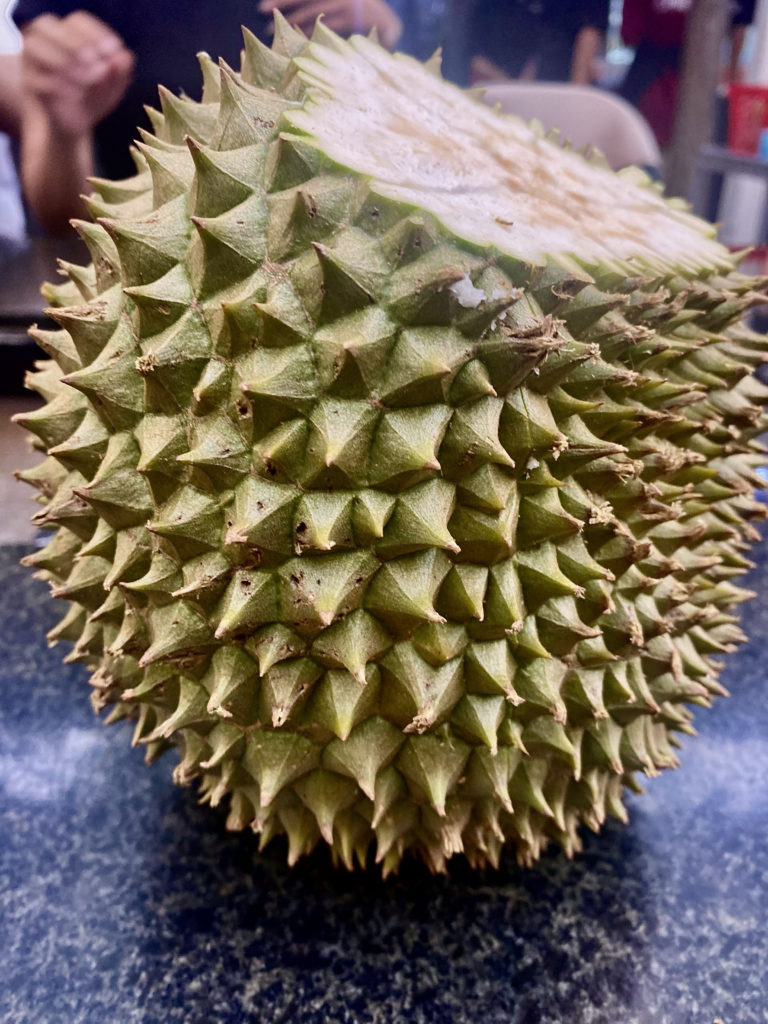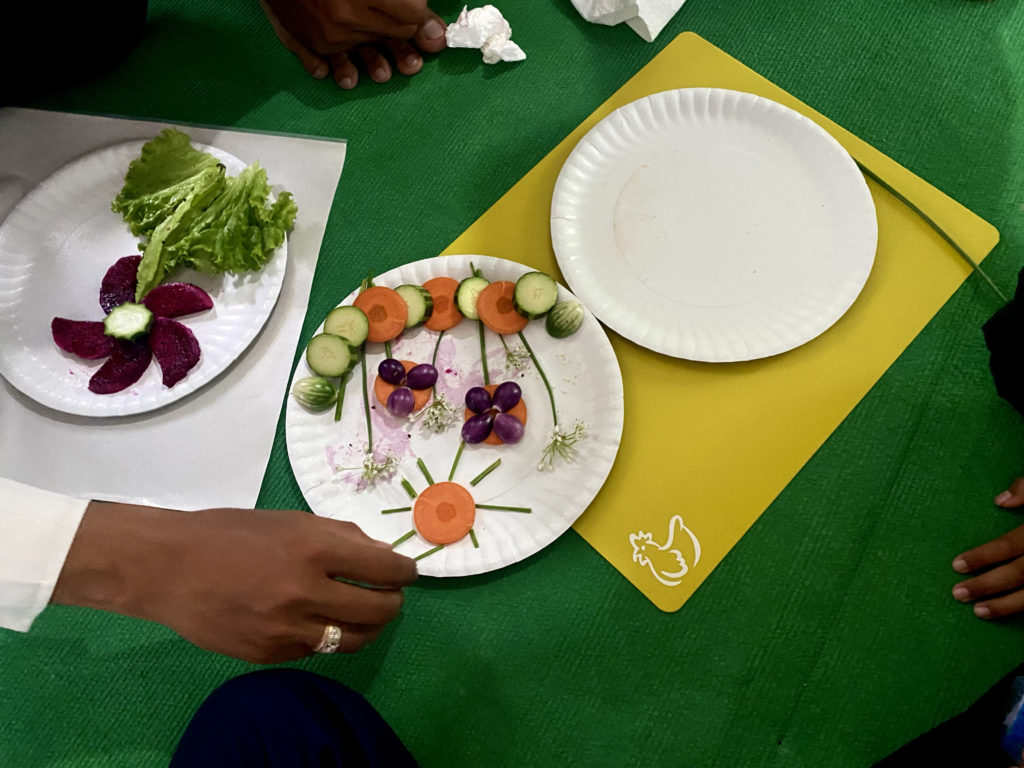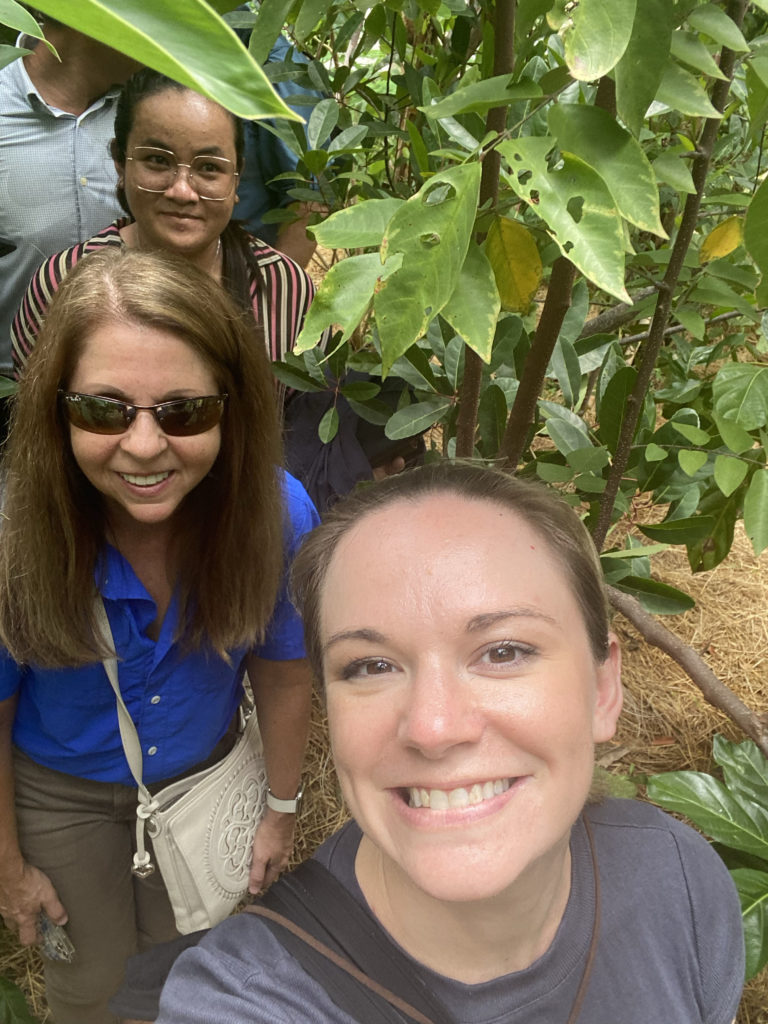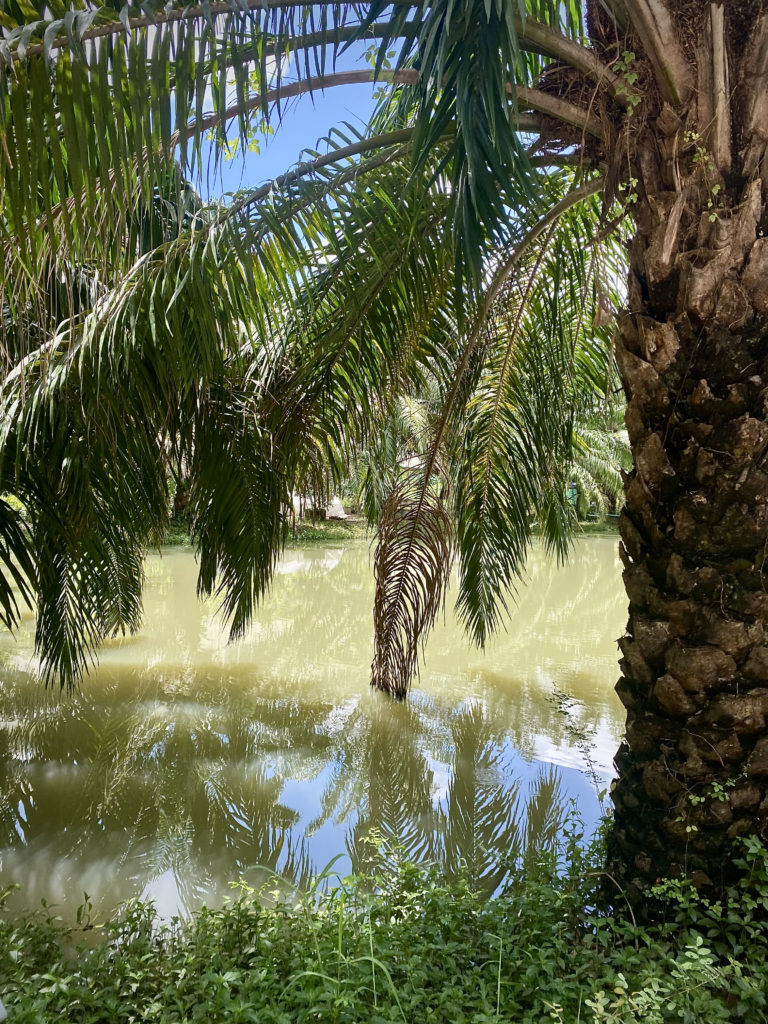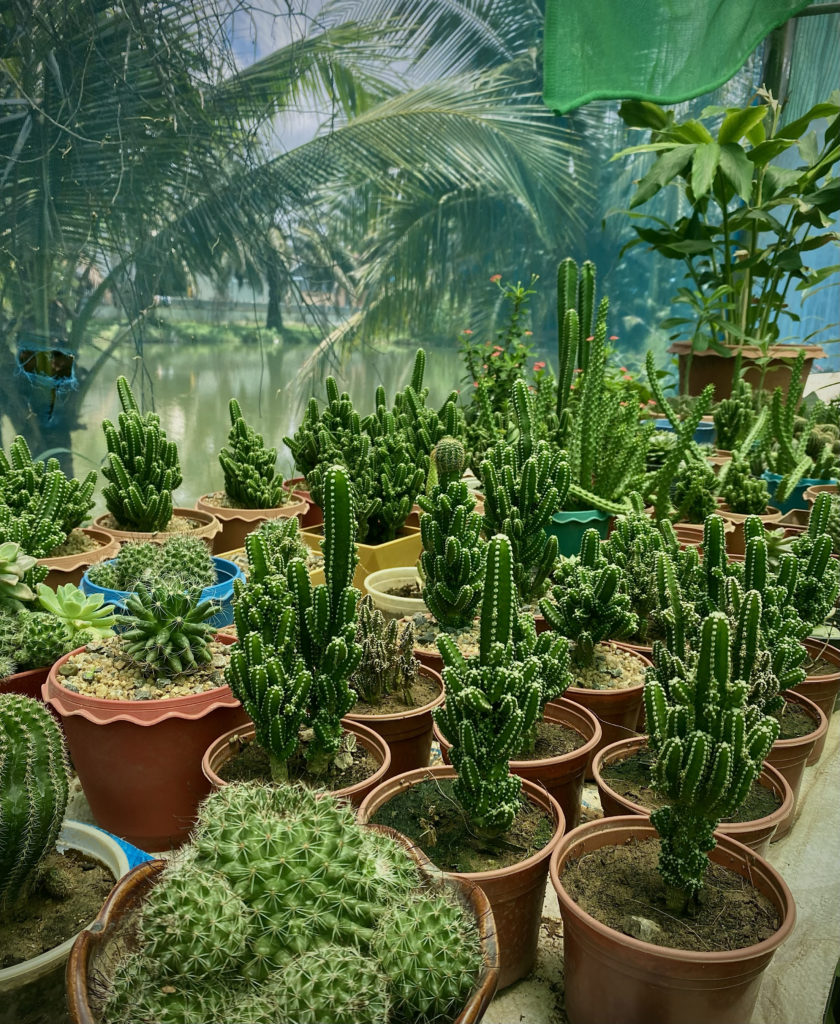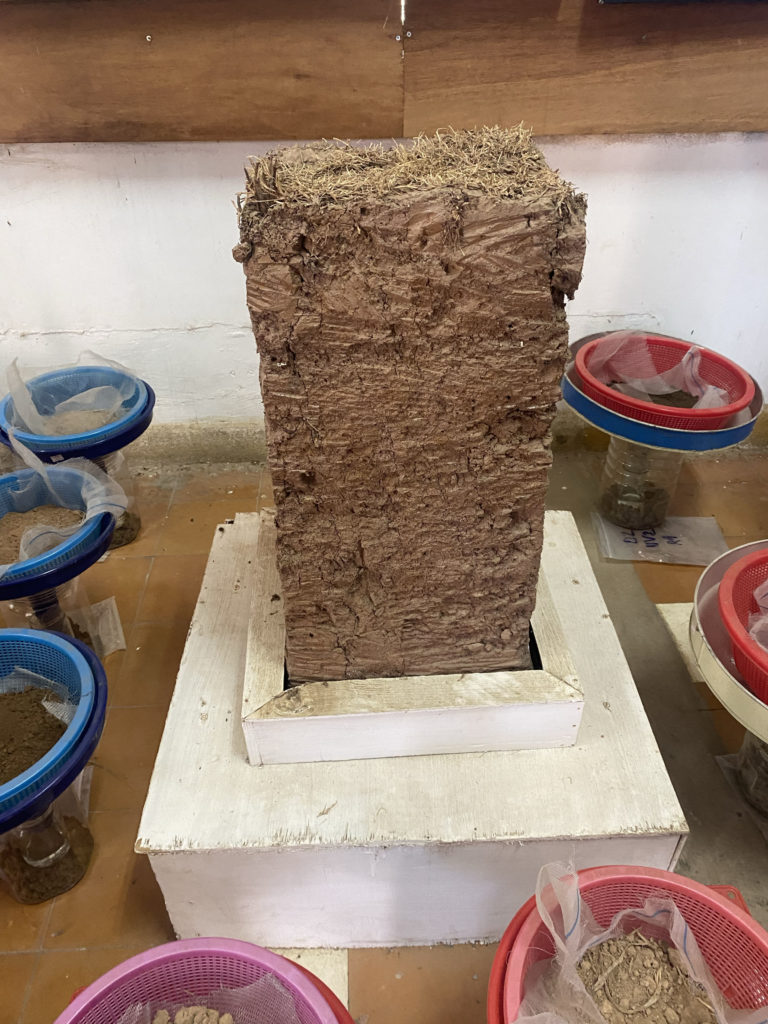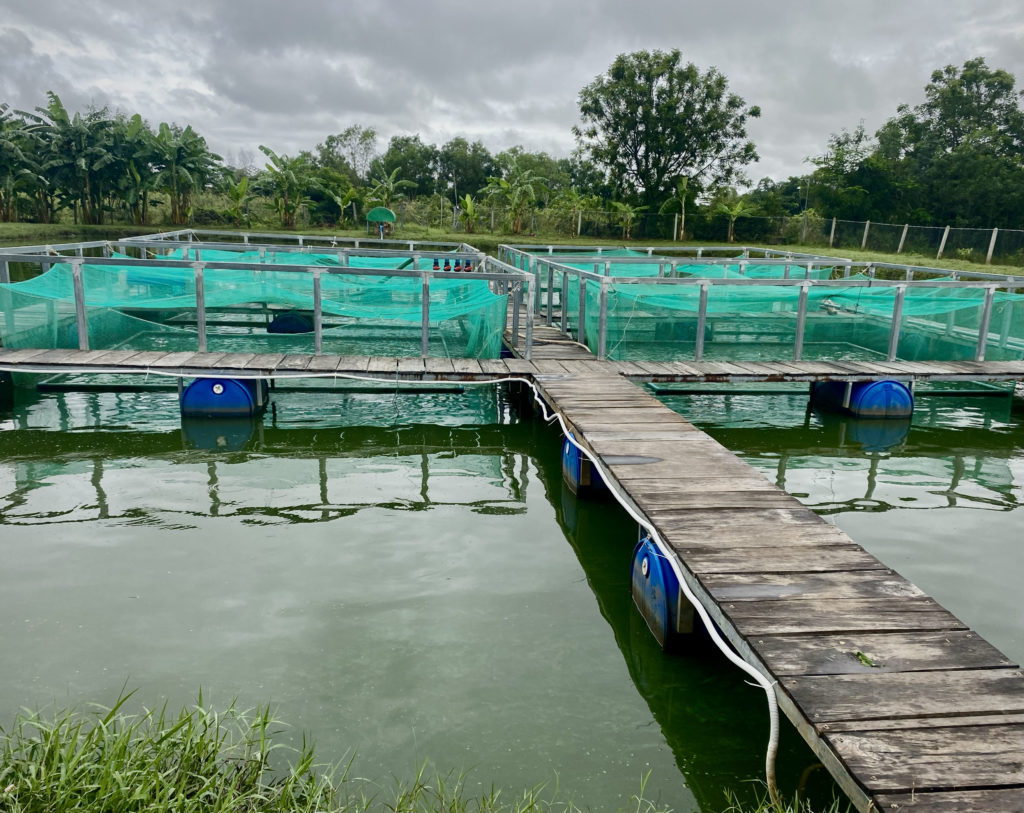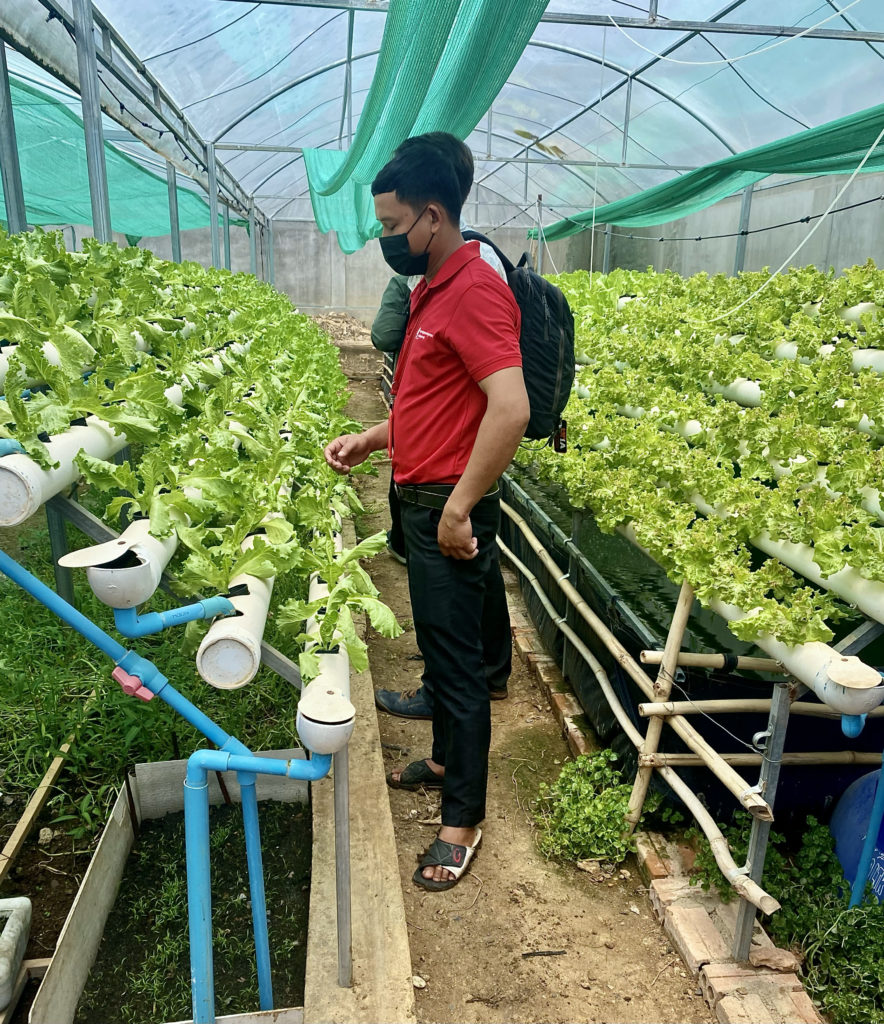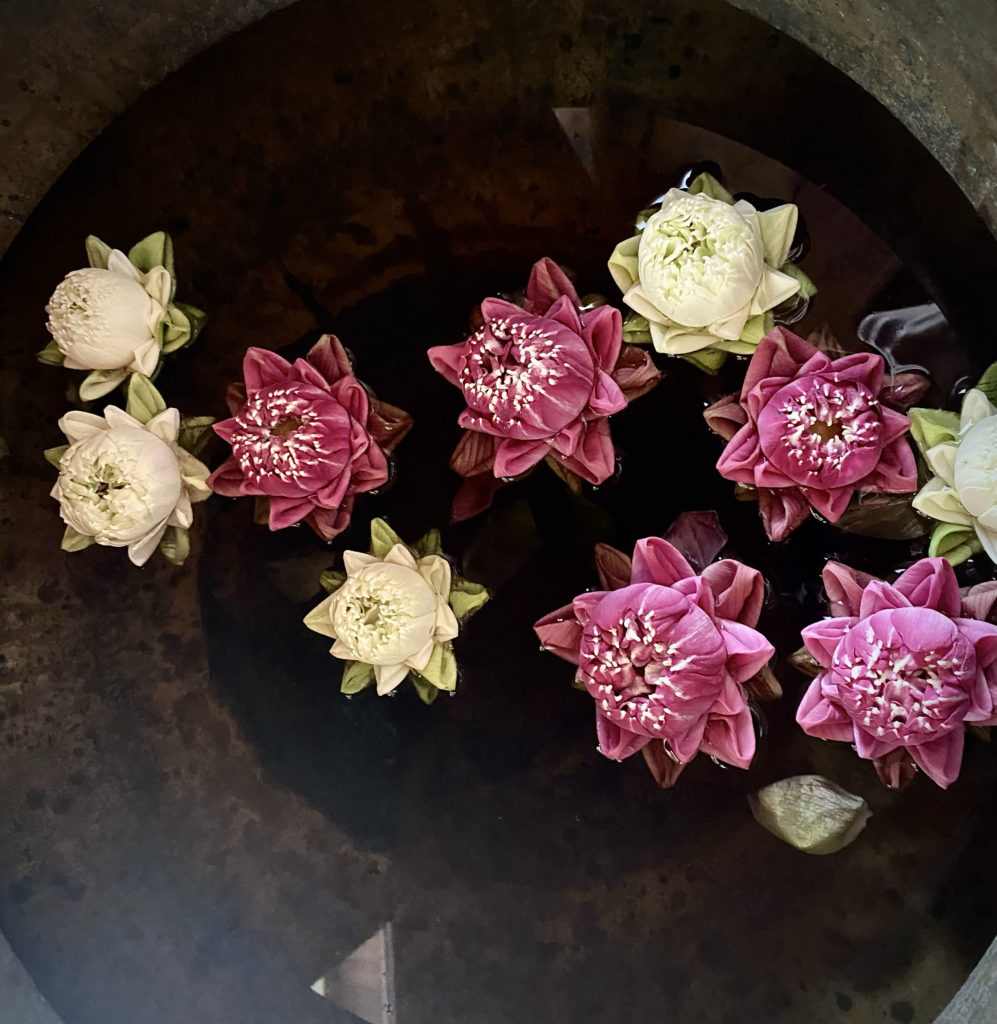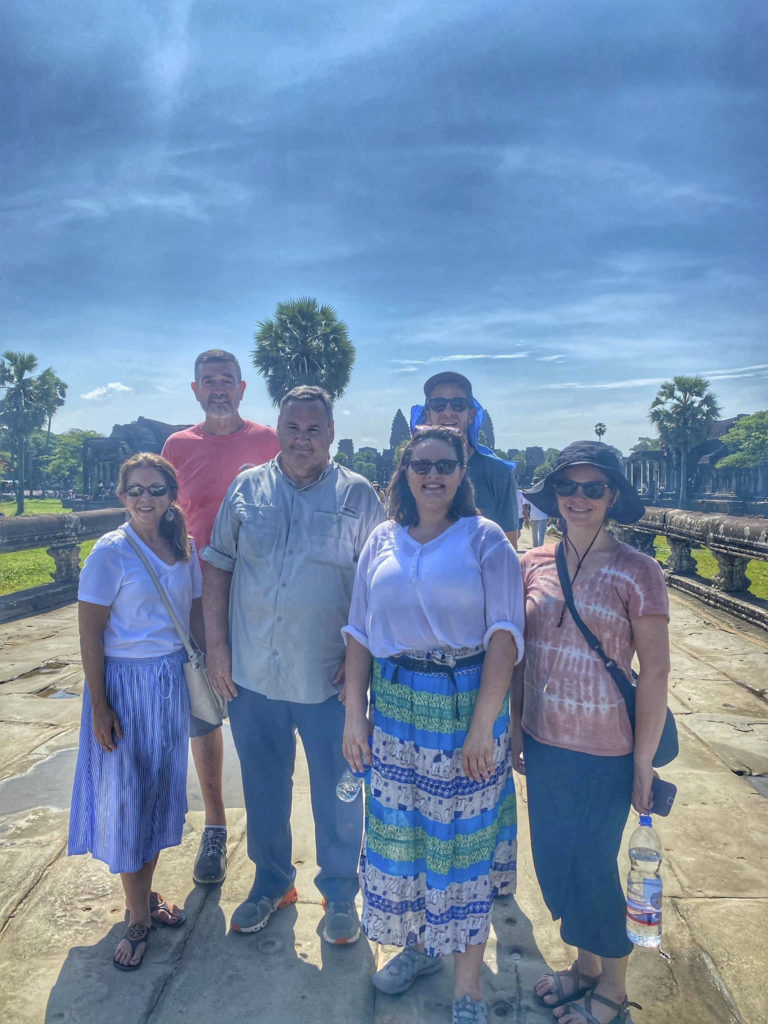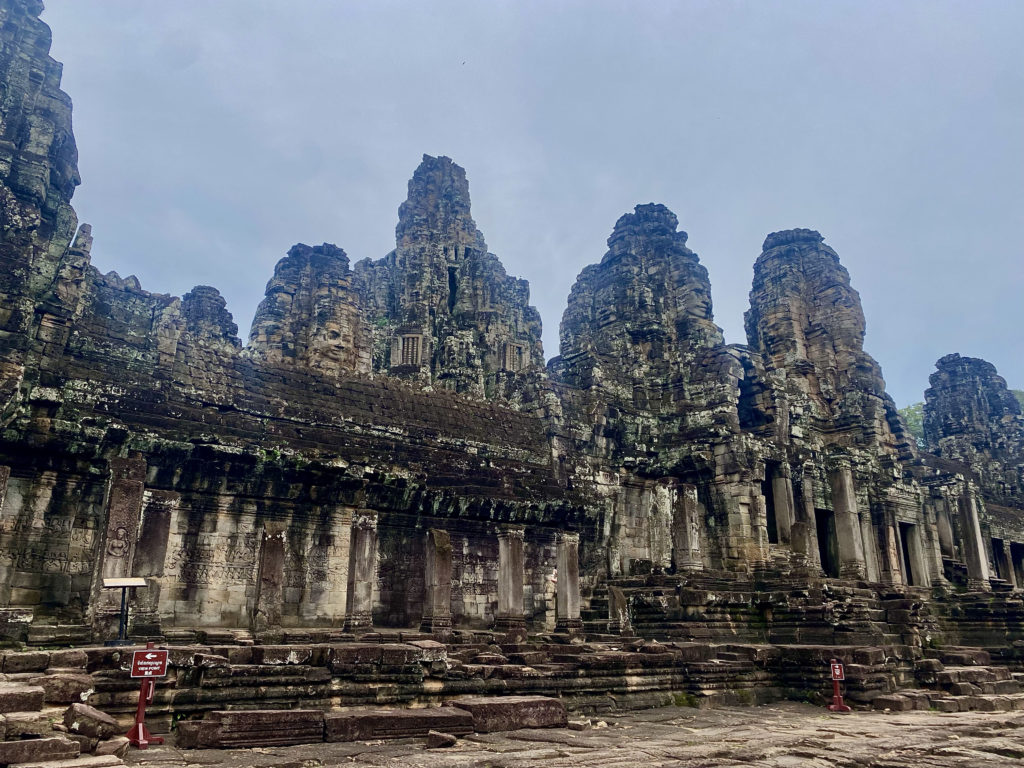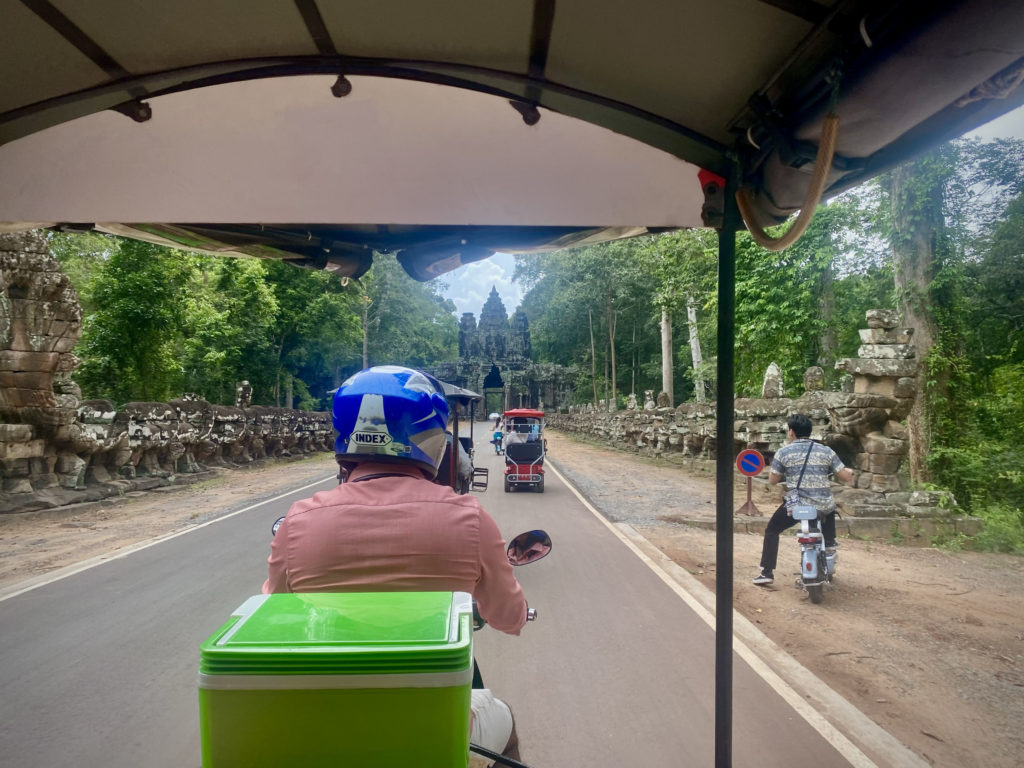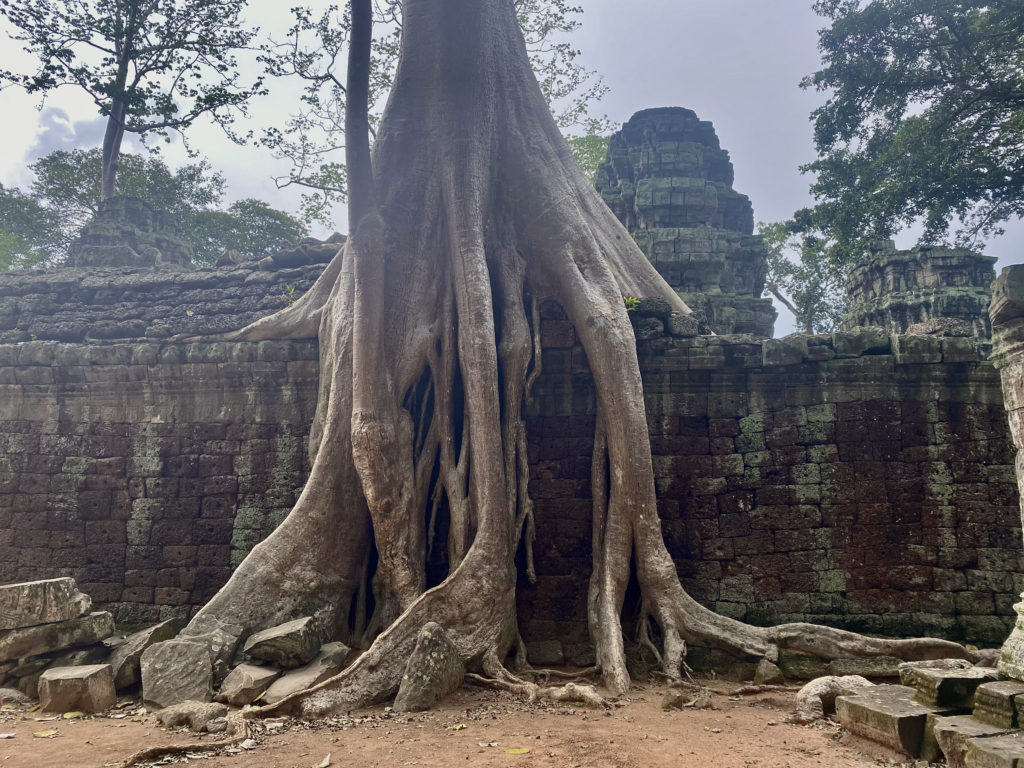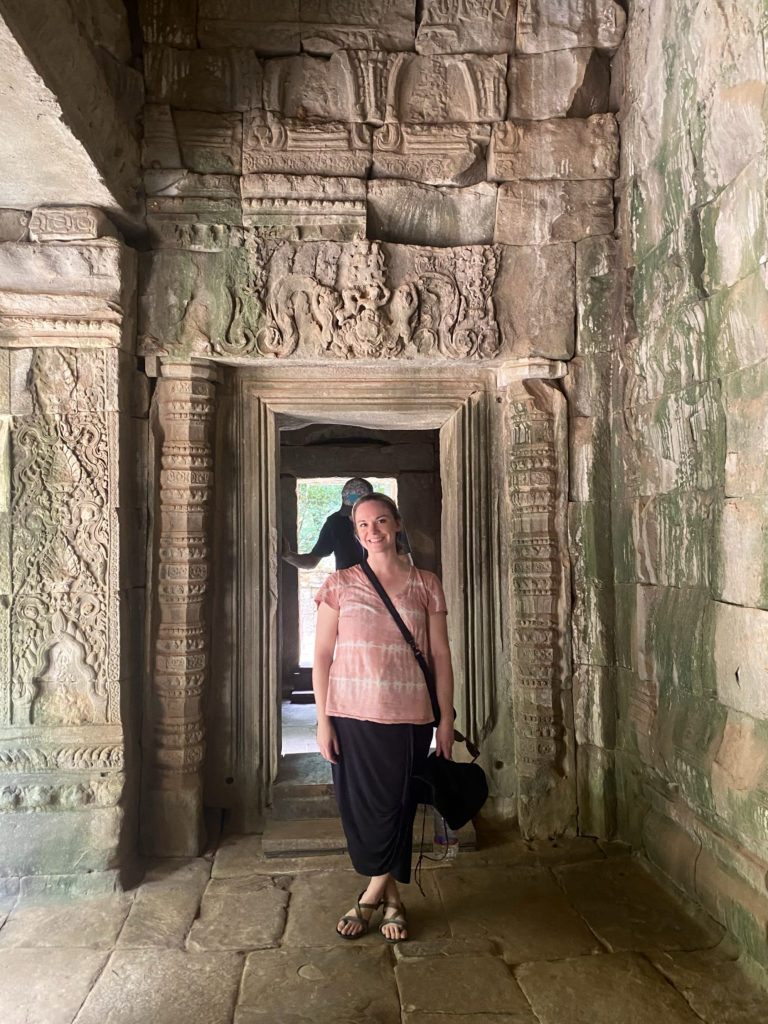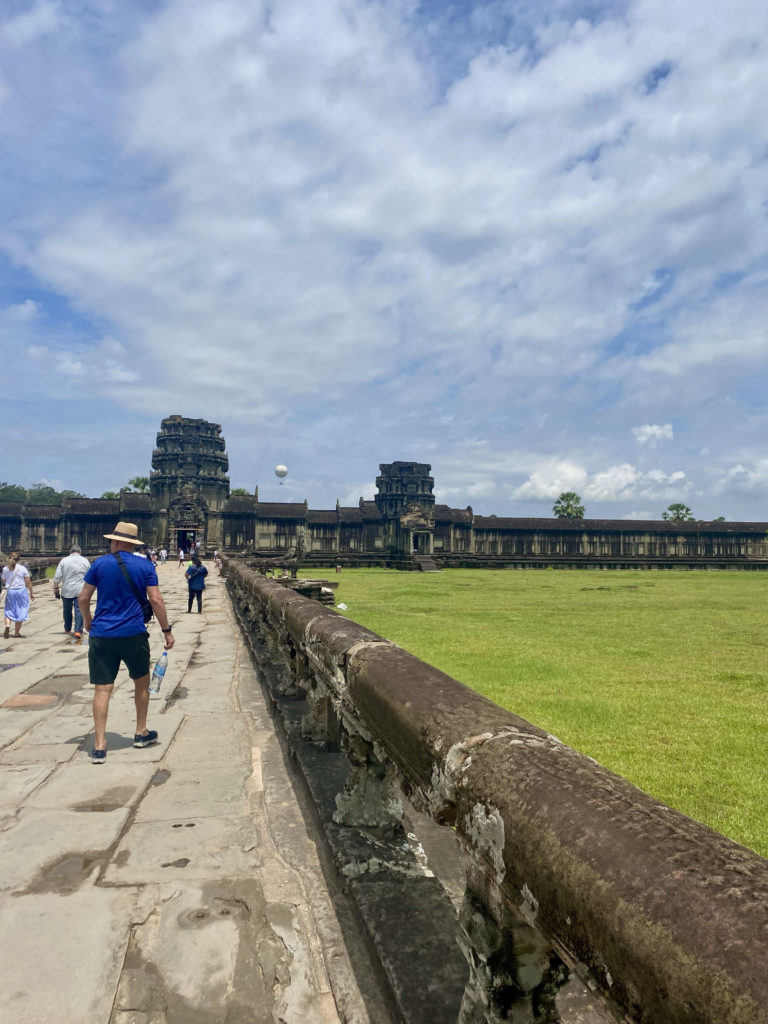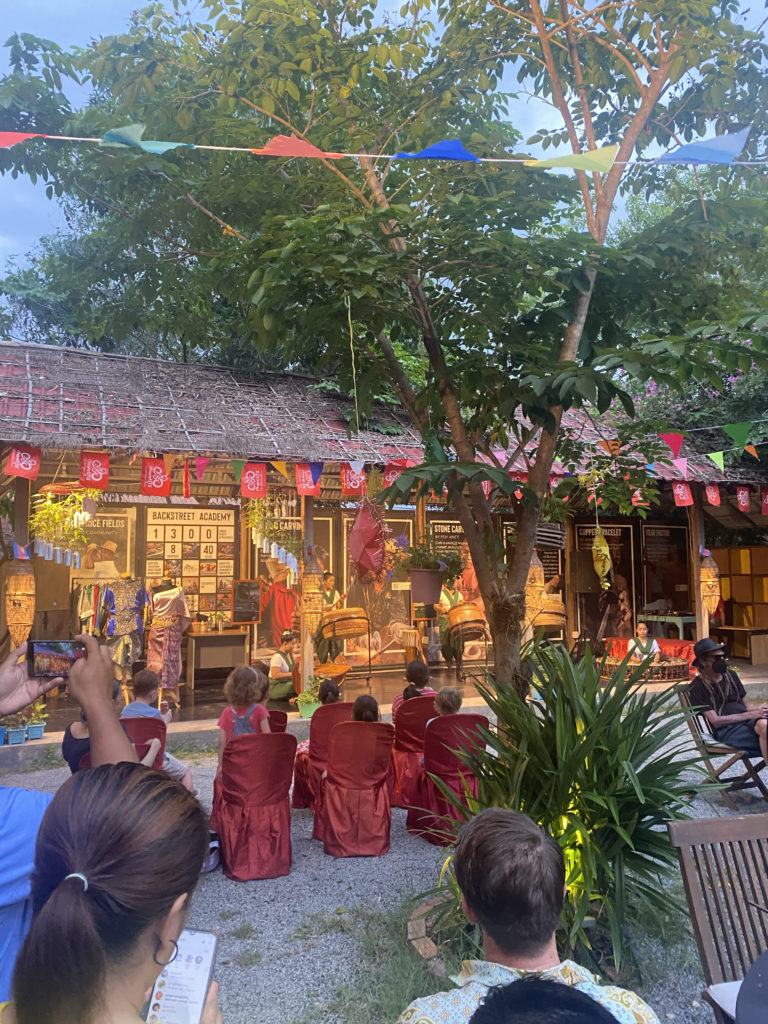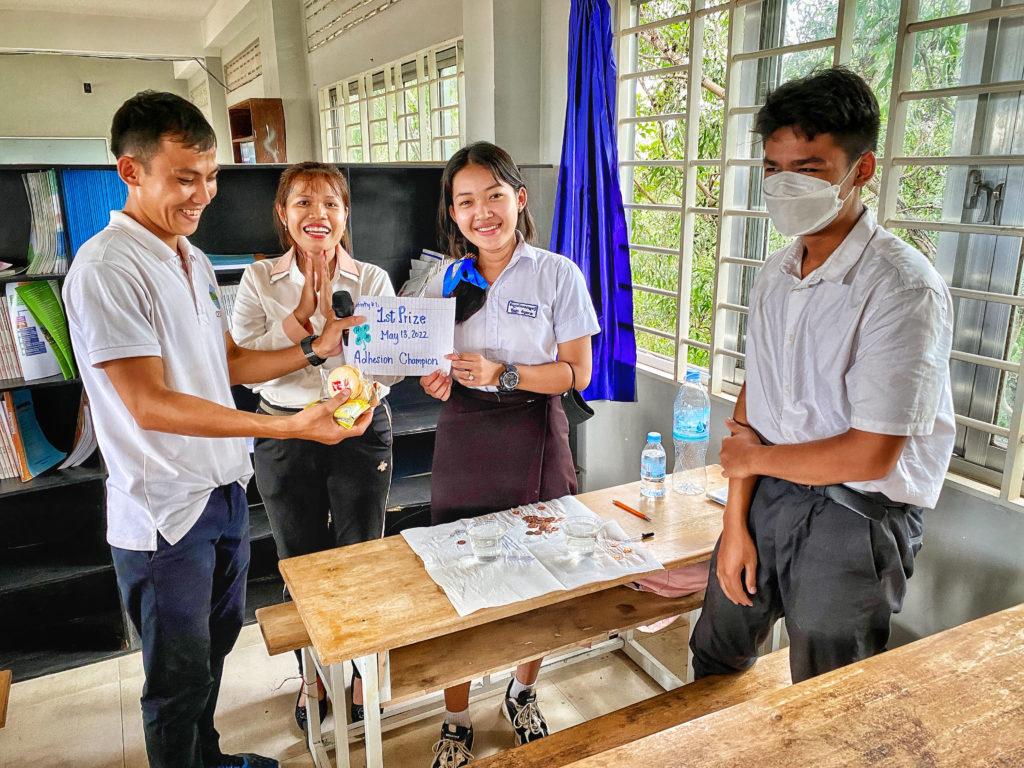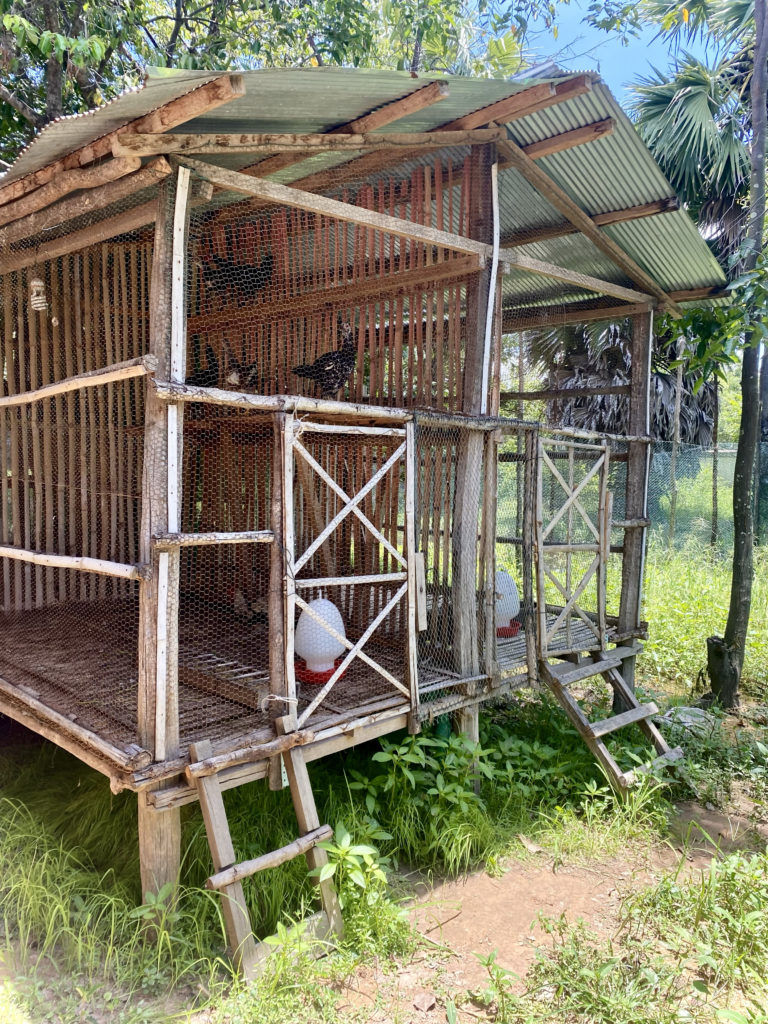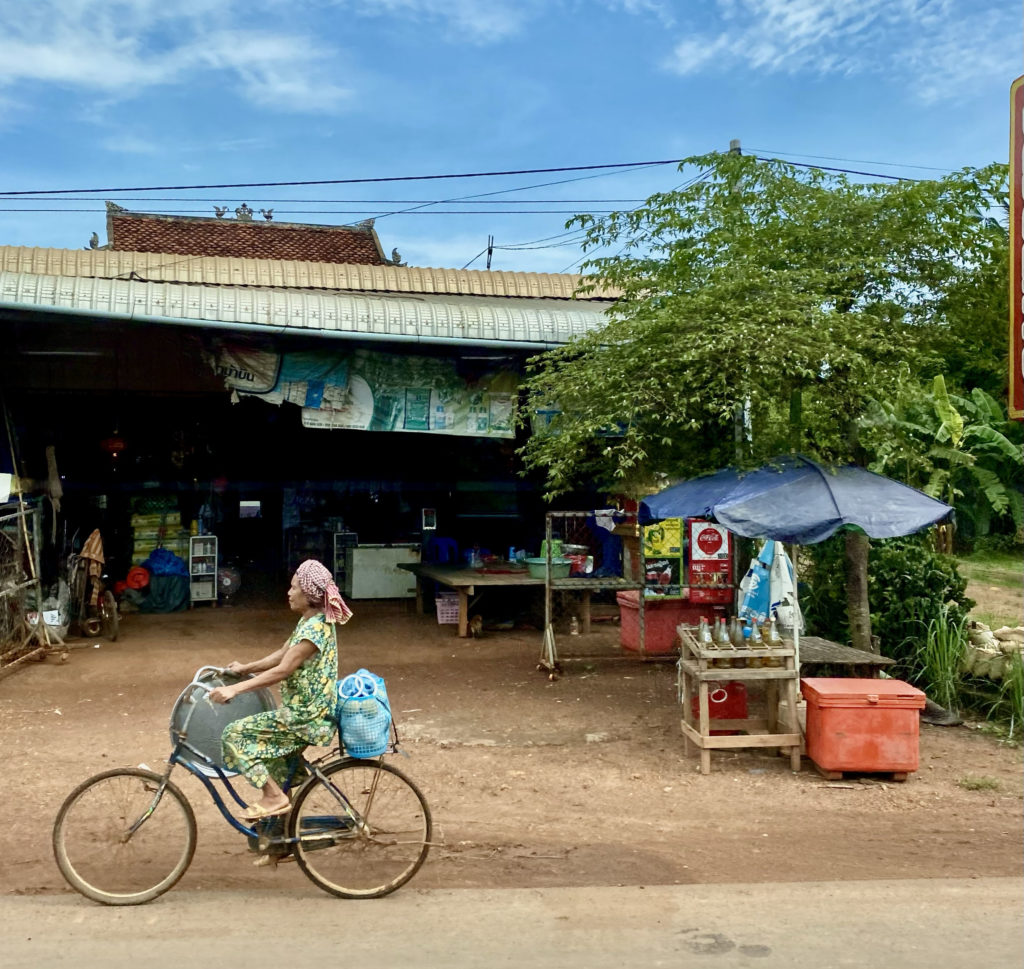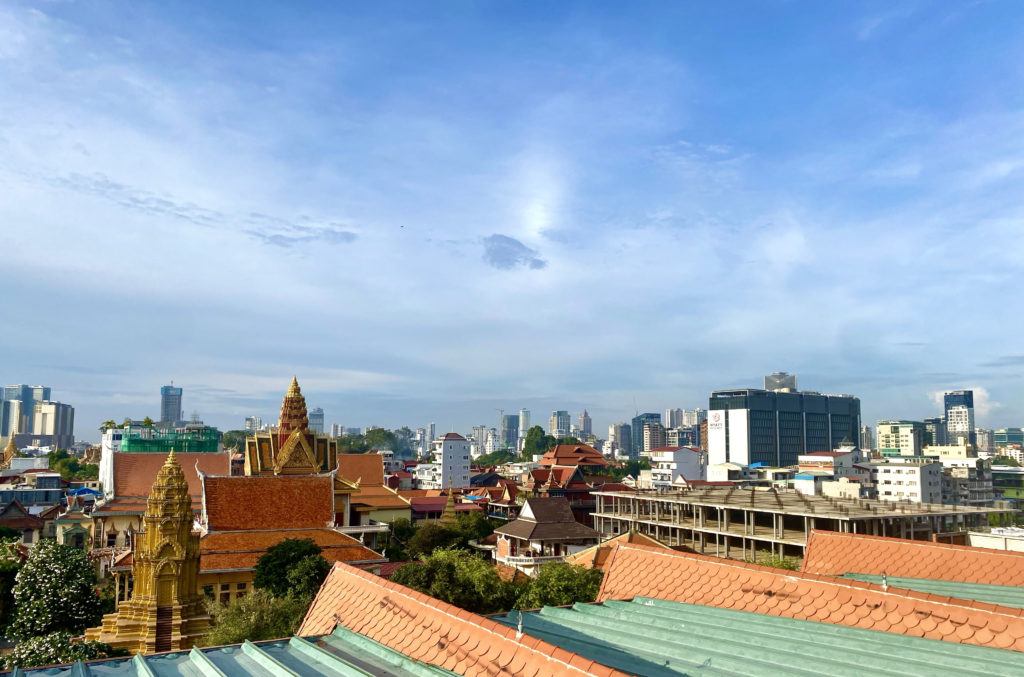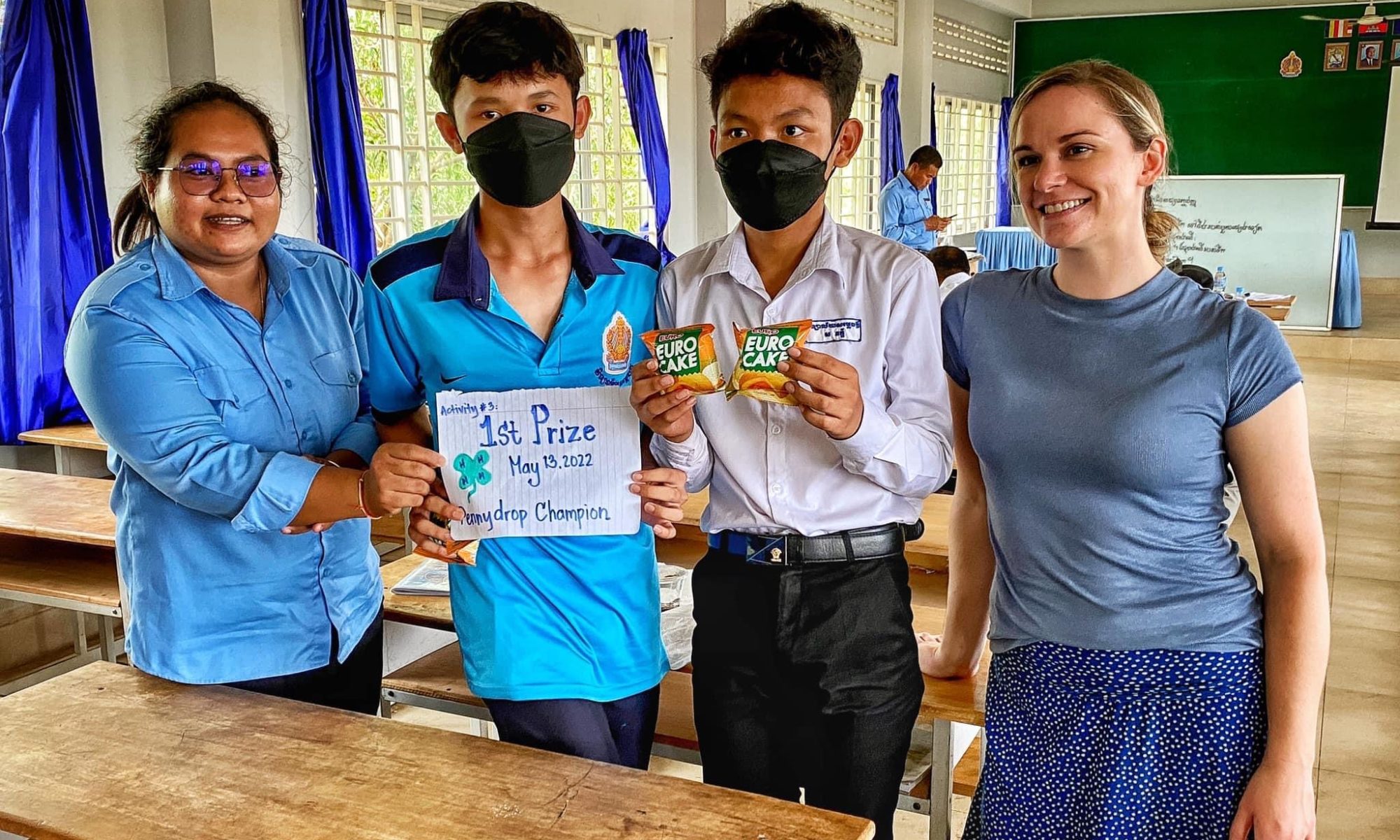
By Mary Shelley-Snell
The USAID-funded John Ogonowski and Doug Bereuter Farmer-to-Farmer (F2F) Program provides technical assistance from U.S. volunteers to farmers and agricultural groups in foreign countries to promote sustainable improvements in both food security and agricultural production, processing, and marketing. The Cambodian Farmer-to-Farmer project is administered by the Smith Center for International Sustainable in partnership with the Center of Excellence on Sustainable Agricultural Intensification and Nutrition (CE SAIN). This project promotes the integration and productivity of vegetables, fruit, and livestock in food systems in Cambodia through short-term exchanges between skilled American volunteers and farmers, farm groups, agribusinesses, NGOs, and universities. These exchanges place American volunteers with Cambodian host-organizations for two-week assignments to respond to local requests for technical assistance.
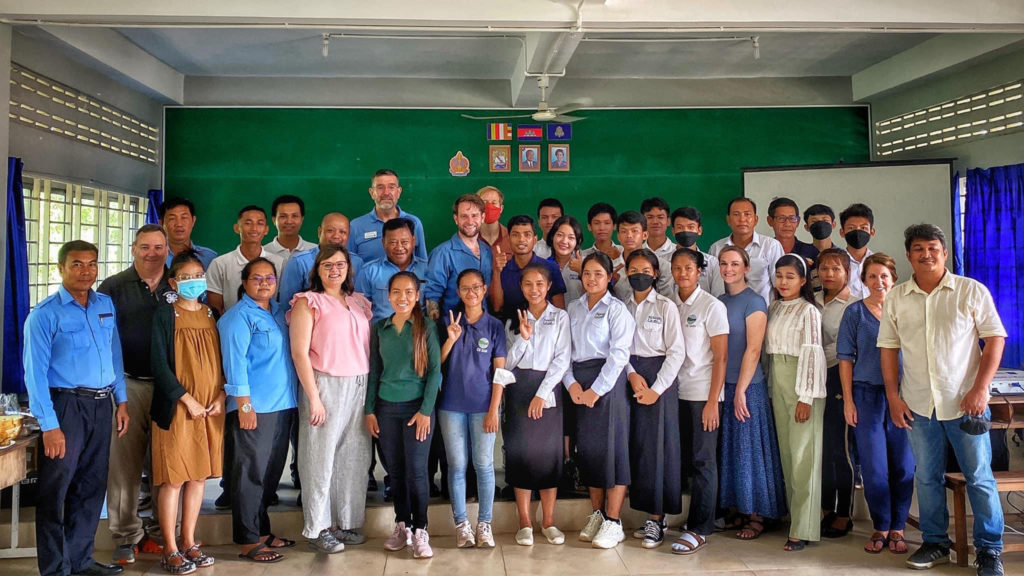
Kristen Johnson, assistant professor and nutrition specialist with the Family and Consumer Sciences Department and University of Tennessee Extension, traveled to Cambodia in May of 2022 as a Farmer-to-Farmer (F2F) volunteer with a cohort of 4-H experts from UT Extension. This cohort included Steve Sutton, Neil Smith, Brigitte Passman, and Jamie Harris. During her time there, she worked with Cambodian partners to demonstrate hands on teaching methods for engaging youth in agriculture and nutrition education. Continue reading to learn about her experience in our first installment of F2F Volunteer Spotlight!
Q: How did you get involved in the Farmer-to-Farmer program?
The Smith Center had been talking with the UT Extension administration about involving extension agents in the Cambodia Farmer-to-Farmer project. I thought it would be an opportunity to bring a global perspective to my work on agriculture and nutrition education.
Q: What were some of the highlights of your time in Cambodia as a F2F volunteer?
It was a great experience! The highlights that come to mind include working at a local elementary school, teaching nutrition education to a kindergarten class and incorporating nutrition education curriculum through art and local produce. I worked with teachers and local university students on this and we used flowers to make art. I also enjoyed getting to travel around the country and learn from people there. Overall, I think it was a valuable learning experience for all the UT Extension agents that participated.
A Few Favorite Things:
The food is really good! Getting to try many different types of food was so exciting to me since nutrition is the focus of my work. It was also nice to see both urban and rural parts of the country and see how food is approached differently in different areas. I loved getting to try the fruit they produce there like durian, soursop, and lychee.
Q: What kind of impact do you think being a F2F volunteer could have for other UTIA faculty?
I’ve thought a lot about how these experiences could benefit extension faculty and staff at all levels; having the opportunity to do international work is a valuable thing because it could help agents better serve the diverse communities in Tennessee. When you can learn how individuals in other places approach the same concept, you find that the way they do things might enhance the way you’re doing things and vice-versa. It makes us all better able to address the worldwide challenges nutrition and agriculture professionals are facing.
Q: Why do you view this program as being important?
It’s my understanding that some of the goals of F2F are to connect professionals with various types of agricultural expertise in the US with their counterparts around the world so they can learn from one another and work towards solving the world’s challenges. It’s a mutually beneficial learning experience that provides experience and opportunities to better understand and navigate international partnerships. It’s important because it helps us have a greater understanding of how the US and other countries can work together to address global issues, particularly food insecurity and poverty.
Q: How has the Smith Center impacted your work?
Without the Smith Center this opportunity wouldn’t have presented itself. Additionally, I was selected to be a Smith Global Leadership Fellow this year, which has provided support, professional development, and connections that are helping me become more globally engaged. Overall, the Smith Center is a valuable support system and resource for faculty interested in international work.
Global Goals for the Future:
Johnson would love to go back to Cambodia and build on the partnerships she formed as a F2F volunteer. She is also interested in working in Central and Latin America because many of the foreign-born populations here in Tennessee are from Latin American and Central American countries, so it would improve her ability to work with those populations as a UT Extension specialist.
